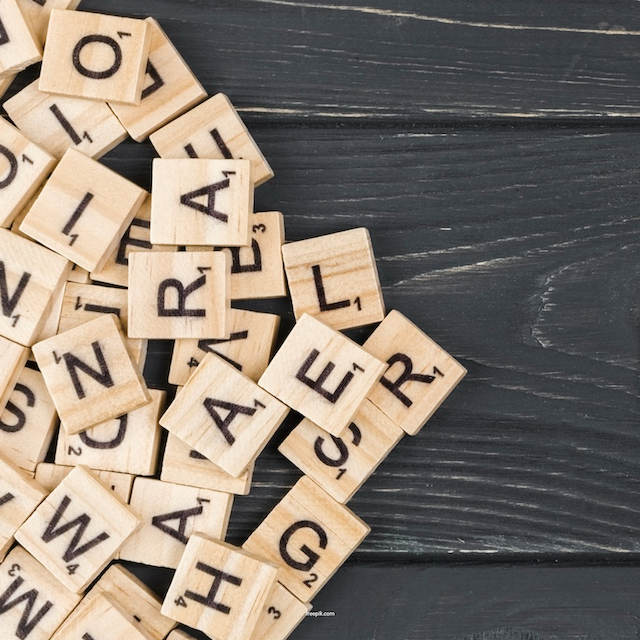
by IABA Team | Jul 27, 2021
Those with autism spectrum disorder (ASD) have a more difficult time communicating compared to those who present as neurotypical. Communication isn’t just words and speaking. It’s reading body language, facial expressions, and gestures. All of this makes a conversation happen and conversations would be dull and hard to understand without them.
Autistic people have a hard time reading these cues leading to social misunderstandings. A new study just published in the Journal of Autism and Developmental Disorders found that autistic people seem to have an inability to recognize anger in faces. This was interesting because it seemed that anger was a specific emotion that was frequently misunderstood. There wasn’t any problem recognizing more positive emotions.
Autism is Not an Impairment
Ph.D. researcher Connor Keating wrote in a news press suggesting that the description of autism as an impairment would be incorrect. The corresponding news release for this study reads, “It’s more that autistic and non-autistic faces may be speaking a different language when it comes to conveying emotion.”
Keating explains another theory called the “double empathy problem” as a reason why these communication boundaries exist. As explained by the National Autistic Society, this is when two people with very different backgrounds communicate with each other and will lack empathy for each other. We base our social interactions on our past experiences and these experiences are so different for autistic people and neurotypical people.
This will break down the interaction and frustrate both the autistic person and the neurotypical person. It makes perfect sense that socializing between the two will have some challenges.
The Challenges of ASD Communication
Autistic people can often come across as rude and have a misunderstanding of basic social cues compared to neurotypicals. Having empathy for one another would ease conservation for both parties. This study suggests that autistic people and neurotypical people are simply missing each other’s signals. With facial expressions, autistic people see them differently but that doesn’t mean it’s wrong.
School social worker Jen Elcheson has autism and has firsthand experience with not recognizing anger. She explained this by writing in an MSN article that any subtle signs of anger on a face she couldn’t recognize. Unless the anger was outwardly expressed, Elcheson wouldn’t pick up on it and continue to anger whoever she was with.
It took many years for her to understand the problem and work around it. Elcheson also shared that she doesn’t have these problems with other autistic individuals. She says it’s like they seem to understand each other. Elcheson agrees with Dr. Keating’s findings and finds validation in them.
ABA Therapy from IABA Consultants
If you have questions regarding autism treatment with ABA therapy, we are here for you! Our goal is to make sure no family is turned away due to financial constraints. Our therapy team would love to talk to you. Find the location closest to you and give us a call. We’re here for you.
Sources: National Autistic Society, Moms.com
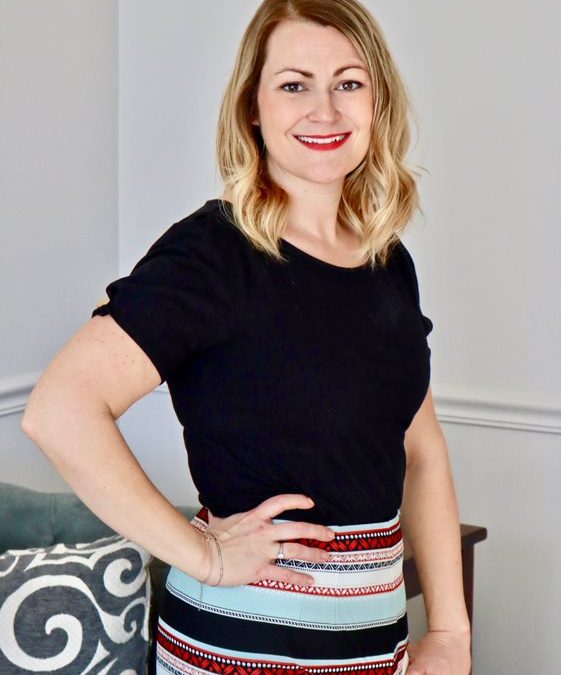
by Jessie Cooper | Jul 15, 2021
What do you do with anger that’s real? Anger that will burn cities and clear anything and everything in its path? Where did it come from and why is it here?
The very short answer is anger feels good in the moment–it’s the aftershocks that are damaging if they are unleashed without guidance. Anger is a release of pent-up emotions that have no direction to go. The ensuing explosion unleashes this anger and gives us a false pretense of power. Luckily, most of us feel horrible when we get this spot but there are people who abuse others during periods of anger.
Anger & Abuse
For those of you who abuse other people with your anger, know this: there is fear, hurt, shame, guilt, sadness, grief, and other emotions that lie just beneath your anger. While your explosions and “wins” over others may feel like triumphs they are in fact a loss.
When you give in to your anger you abandon yourself and your other emotions. You are also hurting others to make yourself feel better. This is never OK. Not ever. You can heal at any time by choosing to stop hurting others and tend to your wounds.
Onto the rest of us.
Coping with Anger
If you wield your anger like a weapon then feel guilt, shame, or other emotions after an outburst, you are experiencing what most of us experience. We all experience this at some point–no human is perfect (I promise).
Anger is a messenger that you have a lot going on and are either not taking the best care of yourself or are faced with a very challenging situation in life. Anger lets us know that we need love and care. Anger tells us to look at our brave hearts, kind souls, and human feelings and provide care.
Finding the Cause of Anger
Last week I wrote to you about rage. Rage, like anger, is a powerful emotion. When rage is the messenger and not the driver it can be destructive beyond measure. Without direction anger and rage are destructive to you, me, and everyone in our path.
After my first son, Henry, was born I suffered from postpartum depression which was exacerbated by domestic abuse. I don’t have words for the darkness I walked through during that time. I also don’t have words for the shining light of love I found in my son.
I fought my way through postpartum depression with therapy, medication, and a loving community. At the time, I still was not able to identify I was living in domestic abuse. When my son Declan was born less than two years later I was determined to avoid suffering from postpartum depression again.
Looking back at my pregnancy and the birth of my second son is bittersweet because the work and self-care I put in were incredible. None of it involved his father, other than my request to “not attack me while I have the baby.” It didn’t work. What worked was asking my friends and family to wrap me in support, encapsulating my placenta, and taking real maternity leave. I thought I had it down!
This is the point when I started to feel anger, shortly followed by rage.
Avoiding Manifestations of Anger
I remember being stumped when I thought about why I was so angry after my six-week check-up. I am not a quick-to-anger person unless I witness serious injustice. I asked my wonderful OBGYN, who supported me through both births, why I felt anger? She laughed, “you have two children under 2, this is normal!”
While I did not like this answer she was totally right. Henry and I had gotten into our groove over the past 20 months. I knew how to take care of the two of us, but caring for two babies changed our routine. I was also always walking on pins and needles during my previous marriage. My nerves were thin and my children were loud. I was sleep-deprived, nursing, and doing almost all of it on my own. Something felt like it had to give.
Anger told me I needed to find a way to take care of myself so I could cool down as a mama. I felt extreme guilt (as we all do) when I would lose it with my boys. I read this awesome book, How to Stop Losing Your Shit With Your Kids, and started a mom-tribe book club where we all applied the practices of the book while supporting each other as mamas.
I would be remiss to not mention the asshole things kids do sometimes. God I love them and, yes, they are all limbic systems, but this is so maddening when they have no survival instincts.
Not Losing Yourself to Anger
I want to let everyone know that anger is completely normal if you are going through early motherhood while living with domestic abuse. If you let the anger take over, however, you will spend most of early motherhood lost in its grasp. If I had totally given into anger I would have missed so many moments with my sons simply because I was depleted.
Now, two years later, while I still have my moments (don’t we all? Mamas?) I also know when I feel anger around the boys, what I really need is a quiet minute and to be present with them. I don’t always parent perfectly (OK, almost never) but ‘reset time’ only takes a few minutes and prevents anger from dominating my parenting, period. All because I listened to what the topography of my anger map was telling me.
Anger still comes for me, as does rage. When I see injustice against others, my children, or myself I can’t begin to explain the flames that rise within my heart. I do know that I unequivocally do not want to hurt another being. The quick release of lashing out in anger can cause long-lasting damage.
Channel Your Rage to be Productive
Anger can feel powerful. All-encompassing anger feels like it can get you anything you desire. I can promise you that this is a lie. What anger is really telling you is to pay attention to your own heart and world so that you can right a wrong. That wrong can either be how you’re caring for yourself (postpartum depression care or lack thereof) or how others are treating you (leaving domestic abuse).
If we choose to listen to anger and rage, rather than act on them immediately, we can learn they can be some of the wisest guides in our lives. Anger and rage tell us what needs to be corrected. Love tells us how to correct it.
You and I can use this wise messenger to become a warrior of love, create the lives we want to live, and build the better world we all envision. Don’t burn it down. Build it up.
Xoxo,
Jessie
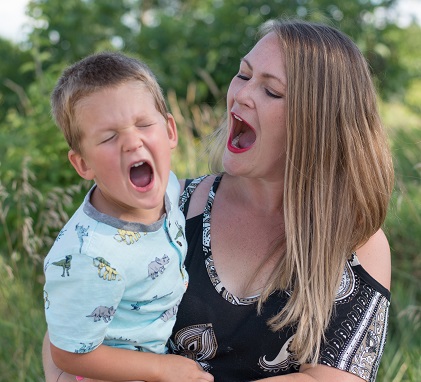
by Jessie Cooper | Jul 8, 2021
Over the last several weeks I’ve written to you about staying true to yourself through trauma and the turmoils of life. As a woman, I used to think that staying true to myself meant being happy and polite all the time. The men in my life have been burdened with a similar mistruth of staying strong and brave all of the time. Brene Brown has a Netflix series and in it, she talks about these gender roles and shame. The pushing down of our truest emotions and the pressure of gender as well as societal roles.
A “Perfect” World
As a child, I was into books that created alternative societies creating a perfect world. Even then I knew the worlds created on the pages were harmful but I was curious why these societies were so “dreamy,” if you will. No one was themselves in these stories. A few examples of the books I read are Brave New World, Stepford Wives, A Wrinkle in Time, and The Giver. Each of these books has a different theme but the bottom line is the same; numb your pain, be quiet about your grievances, and do what’s best for the culture. Sound familiar? It gives me shivers and yes it sounds familiar. Don’t get me started on Disney’s Wall-E.
In these books, conformity is encouraged and societal defiance is looked down upon, with one hero/heroine who questions the metaphorical pillars of society. I would like to think we can all be our own similar types of heroes and find a way back to our sacred ground by honoring each beautiful part of our souls.
Anger & Rage
Anger & rage aren’t talked about enough. The lesson I was fed while growing up was not to make other people uncomfortable. Any emotion that is not pleasant is labeled as a negative emotion, anything negative is a problem to be fixed. But is it? Aren’t anger and rage normal human emotions that we all feel? I think so.
If I’m right, what will you do with the rage in your heart?
I don’t have a full picture of it yet but what I do know is that no human emotion is bad; it’s just part of the human psyche. There isn’t a single emotion that we are in charge of so why do we believe that there are emotions that are negative and others that are positive? That’s the part I’m seeking to understand through my own experience and knowledge as a clinician.
So, if rage is just an emotion and we aren’t in charge why do we care so much about hiding or showing it? Why do we create gender norms to say who has permission to feel and show rage? I wish I had a very educated answer for you but I don’t. I do have a gut feeling that it has a whole lot to do with power and discomfort.
Looking at All the Rage
Here’s what I know about rage so far: Rage is a powerful emotion that tells us something is not right around us, that a threat is present. It’s an external emotion. A messenger if you will. A messenger that loudly screams “I see a threat, I feel unsafe.” When rage screams at us we need to listen. Really. The problem is that the vast majority of us don’t. Instead of listening to rage we either use it to lash out (puff up) or crumble (shrink down).
Rage is not a helpful emotion when we do these things. If we listen to rage, however, we can honor ourselves by demanding a life we are worthy of. A life where all our emotions are valid yet our behaviors following them are selected by us, not for us.
What about unfiltered rage? Rage exists as a reflex to perceived injustice. If you are not honest with yourself about what hurts inside of your heart, you, my friend, are at risk of hurting others or yourself with rage that will turn into hate.
Rage & Hate
Hate can seem sexy. It calls to you and whispers, “it’s not you, you are fabulous, wonderful; it’s them.” Hate tells us that we don’t have to feel rage and can quickly move back into happiness if we just remove the threat. Shame tells us we are in fact the problem and need to conform by pushing down the rage. Neither works, both steal a part of our voices and one desires to steal the voices of others.
If we are willing to tell hate we are all fabulous and wonderful but not immune from hurting others or above anyone, we could collectively unravel hate. In its place rage will stand nakedly in front of us demanding a place to be. We can’t let hate come at us. We can’t let hate tell us we are smaller or bigger than we are. We need to remove the hate from our rage to look at injustices both toward ourselves and the world.
I have often written about the forest and fire. That for new growth to come the forest must burn. If the fire is burning around us and we are lost in the flames hate has won. But if we are careful enough to stand amongst the flames, ashen, raw, and open to the change that is coming we can watch birth by flame.
Rage wakes us up and tells us, “you are not being honest, it’s time to come home to yourself.” I’ve written time after time about not numbing your pain, not losing yourself, and not letting the voices from the outside world swallow you. I’ve not been earthside long enough to be immune from cycles of rage and shame attempting to swallow me like flames in the forest. But I have walked through enough of these forests to know that peace comes after it burns and the sun always rises from the ashes.
Listen to rage, but do not let it take over your life. Instead, use rage to take your life back. Fires and all.
Xoxo,
Jessie
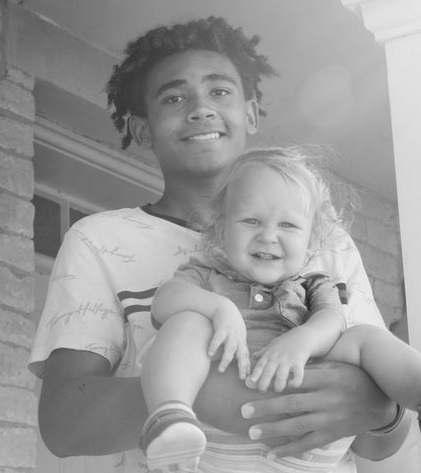
by Jessie Cooper | Jun 23, 2021
Okay, so at this point, you and the nation might be sick of the quote from Glennon Doyle about the cheetah realizing she is not crazy, she is trapped from her wild. I’m going to pre-apologize for bringing it up again if you are one of the people sick of that quote, but it’s a foundational piece of wisdom for me.
I’m going to do a quick recap for those of you who haven’t read,” Untamed.” Tabitha is a cheetah at a zoo who Glennon observes regally pacing the cage. Glennon goes on with the narrative that perhaps Tabitha believes herself to be crazy, dreaming of the hunt and ink-black skies. Glennon writes, “you’re not crazy, you’re a goddamn cheetah.” In this chapter, Glennon writes that when you feel you are crazy and your gut tells you that perhaps you are sane you should always consider that you are not, in fact, crazy; maybe something is wrong on the outside and there nothing is wrong with you.
Hearing Yourself
Last week I wrote to you about setting boundaries and quieting the noise from the stands of the outside world. I want you to become quiet so you can hear yourself. When we are taking in the messages from other people, especially when those messages are loud and shaming, we lose ourselves–our wildness. In losing yourself, the people in the stands start to decide how your life goes and they do not always have your best interest at heart; they have theirs. Above all else, it is incredibly important to never lose who you are and to be able to come home and listen to the voice in your heart that guides you.
As an empath, I really, really do not like looking at injustice. When I see something that tells me justice is at risk I take on the emotions of others. I want to put myself in their shoes, hear their story, and feel the pain of those experiencing the injustice so I know what to do next. For this reason, looking at injustice is incredibly hard but also incredibly important for me. I have to put in a lot of self-care and take time grounding myself before I approach circumstances in life that need to change for the better. When I don’t start by grounding myself I’m pretty sure I come off wild when approaching an injustice. But my wildness doesn’t make me crazy, I’m a goddamn cheetah.
I know many other people that take on the emotions and opinions of others only to find themselves lost. Personally, as a survivor of domestic violence, I know what this feels like firsthand. In speaking up about domestic violence in a rural setting I’ve been met with adversities I didn’t know were possible. Leaving the abuse was the hardest thing I had done until that point. Walking into a system that is not yet set up to tackle the many forms of domestic violence is harder.
Helping Others, Helping Yourself
I’m very lucky with my line of work. When I see basic needs or an injustice that needs attention, care, and a new level of support I get to choose how I approach it. I know I take on the emotions of others who are suffering (joy as well, but suffering is what I want to fix…) so I’m able to check myself in a professional setting. I’ve spent almost a decade as a business owner learning how to do this. In the beginning, it wasn’t pretty, there was a lot of puffing up and shrinking down that I wrote about last week. Now I know that staying true to myself is the number one thing I can do in order to design systems from my company (and the world) that truly create lasting change.
Staying true to myself personally has been much harder these past five years. In reclaiming my voice over the past seven months I’ve definitely puffed up and shrunk down all the while asking for the grace to stand my sacred ground. Breathing deeply into my belly to remember I’m a goddamn cheetah, as I’m unfortunately met with victim shaming and miseducation surrounding domestic violence. Just yesterday I was asked to say, “domestic abuse,” because violence misleads everyone and makes them uncomfortable.
Do you know what makes me uncomfortable? People being violent or abusive to other people. Not the goddamn word a survivor chooses to use about their own experience.
Giving Grace to Others
It is in remembering my wild and personal experiences that I know all people deserve to live free of injustice. This has given me the strength to apply care to myself in order to do personally what I’ve done professionally for so many years. I have to give grace to those in the stands with especially ugly jeers because they have not yet woken up. They are afraid, uncomfortable, and they are lashing out. If I took their screams as gospel I would lose my life. I almost did less than a year ago.
Remembering that I am a good, kind, passionate, smart woman helps me wash the dust off my bloody knees as I stand against these crowds and respond. Not responding with hate to their noise but with love for myself. It’s easier for people to tell us we’re crazy and dismiss our life experiences that cause them discomfort. Accountability can feel life-threatening to those lost in shame or guilt. Accountability also means the just will prevail while the unjust fail. Those who hold perceived power over others just to keep it (and other resources) for themselves are loud as fuck. What they lack, however, is kindness. You and I, gleaming cheetahs, are filled with kindness and love. We do not deserve to be gaslit away from a life that is worth living, our voices tamed. We deserve to be heard and loved.
Stop the victim shaming. May all women, men, and children be free and safe. Fight for who you are and a world worth living in and a world worth leaving behind for our children.
Xoxo,
Jessie
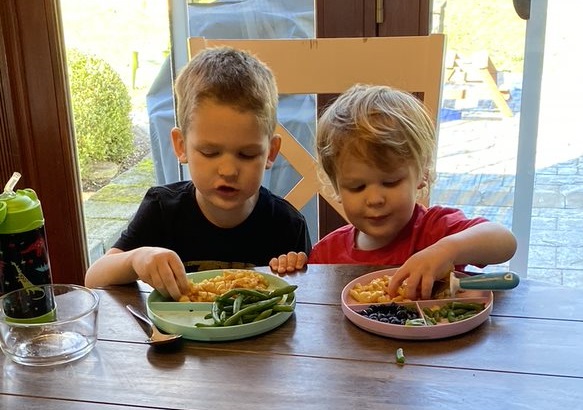
by Jessie Cooper | Jun 17, 2021
At this point in my writing, I’m pretty sure that my readers are aware I’m a Brene Brown junkie. Glennon Doyle is becoming a close second. I quote Brene often and today is no different. Brene often writes about how some of the kindest and most compassionate people have the strongest boundaries. I got a little piece of advice from her work that I’ve been trying to hone since I read it; “don’t puff up, don’t shrink down, stand your sacred ground.”
Let’s dig in.
Learning Where the Ground Is
As a business owner, I have worked with a lot of people over the years. It’s taken me almost a decade to build a team and business that is reflective of my vision. My company isn’t perfect by any means but it is an honest place to work and truly wants what is best for each life that comes to it. Creating the team and company I have today is a story for another time but it is where I first used the “stand your sacred ground” advice.
I was a young business owner and fully passionate woman, who opened this big heart of mine and let pretty much everyone in during the first several years of business. I thought everyone had good intentions in the workplace and was genuinely proud of the work they did. I was taken advantage of both by employees and clients in the early years. A lot.
Employees would overpromise and underdeliver. Clients would not pay their bills or follow treatment guidelines. The combination of these two things had me spinning. And when I spin, to this day, I have two go-to reactions:
- Get extremely anxious and overtalk my problems with my tribe then create chaos around the problem or
- Lash out.
This cycle is miserable for me and everyone around me. This is also where the “sacred ground” phrase began to help.
Self-Care, Sacred Ground
Several years ago I would see that I was spiraling into my pattern of shrinking down with anxiety. I decided to start inserting self-care practices to stand my sacred ground. This is where I first found some of my boundaries and that these boundaries are kind. It’s also where I first experienced that even when you are setting a boundary that is kind and right for you others may not see it that way. The self-care I created was often to emotionally recharge myself after a person lashed out, ignoring a boundary I had set. Other people’s discomfort is uncomfortable to me!
In my personal life, this ‘recipe of authenticity,’ if you will, is much harder to navigate. In the work world, for whatever reason, I’m able to shut out how others perceive me when I stand my sacred ground. I still feel for them when my boundaries cause discomfort, but I don’t absorb it as my own emotion. Personally, it’s incredibly difficult for me to not absorb others’ emotions as I set boundaries. It can even be painful to lose those I love if a boundary I set means we cannot be in a relationship anymore.
In staying true to myself and my vision of kindness I have to hold myself accountable to the boundaries that support my values. In staying safe as a trauma survivor, I know that holding boundaries can literally be life-saving. It’s also incredibly hard even though I wish it weren’t so. By standing my sacred ground I am asking that others in my life honor my person, my needs, and my heart. I also firmly hold a boundary that I will not be in relationships with anyone who stands actively or ideally by abusive behavior.
Reading this may make standing your sacred ground sound simple. I assure you, it’s not. I do not live in a vacuum and neither do you. The unfortunate truth is that abusive behavior is rampant in our society with subgroup after subgroup rationalizing it. As I clawed my way out of a cycle of abuse this fall I didn’t have my sacred ground firmly in place. I barely had myself. Today, I have my true self again but it was a struggle to find the foundation for my sacred ground. I was terrified of who I would lose. I should have been looking at all that I could gain.
Standing on Sacred Ground
My sacred ground has saved my life, yet the lesson to get here was steep. I’m still working on this, unpacking how to stand my ground without becoming anxious. But this I know to be true; your sacred ground is sacred to you. You are allowed to ask for what you want and need. What you want and need should not take from others and instead should propel you forward into the truest version of yourself. And the truest version of yourself isn’t built on the backs of others.
We are all the same. Wishing and hoping for the best life possible for ourselves and our families. Baby, it’s in here, in your beautiful heart, the life you want and deserve. If those around you cannot honor your heart, your spirit, and your desires, it’s OK to say goodbye. If those around you do not respect your safety, you must say goodbye no matter how painful it may be. You need not shrink down, you need not puff up, your sacred ground is waiting to welcome you home to a life beyond your wildest dreams.
May all people be happy, safe, and free.
Xoxo,
Jessie






